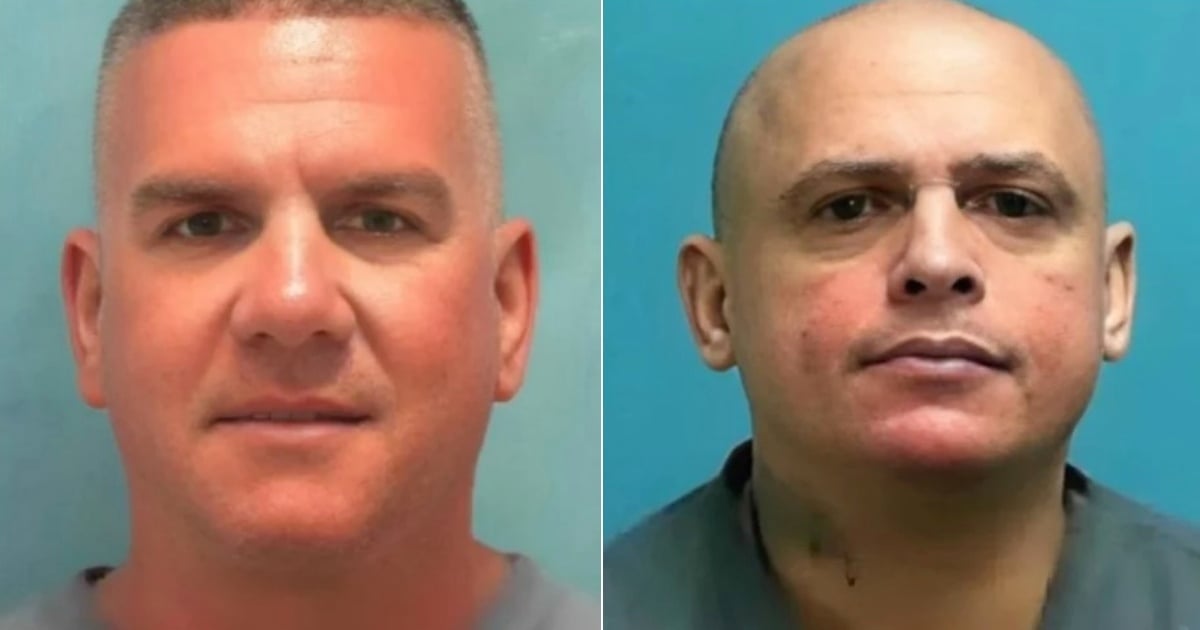Recently deported to South Sudan by U.S. immigration officials, Cuban nationals Enrique Arias-Hierro and José Manuel Rodríguez-Quiñones have been identified as Florida residents with extensive criminal backgrounds. Arias-Hierro, aged 47, lived in Miami-Dade County, Florida, and his record includes at least seven arrests in 1997 and two more in 2006, according to state records. His last recorded detention was on May 2, 2025, and he has been convicted of crimes such as homicide, armed robbery, identity theft, kidnapping, and violent theft.
Rodríguez-Quiñones, aged 54, resided in Volusia, Orange, and Brevard counties in Florida. His first arrest was in Miami-Dade County in 2008 for cocaine trafficking, followed by multiple arrests from 2010 to 2021 for crimes including first-degree murder with a firearm, violent assault, theft, and drug possession. He was apprehended again on April 30, 2025, and handed over to the Immigration and Customs Enforcement (ICE) authorities. These individuals are among over 42,000 Cubans with final deportation orders that the Cuban regime refuses to accept back, as per the Department of Homeland Security (DHS) data.
Controversial Deportation Measures
The deportation flight that carried these Cuban nationals also included individuals from Myanmar, Vietnam, Mexico, Laos, and South Sudan. This action has faced significant legal challenges in U.S. courts. Federal Judge Brian E. Murphy in Massachusetts issued an order requiring the government to retain custody of the deportees, arguing that the law was violated and that they were not given “a meaningful opportunity to oppose their transfer.” Murphy had previously halted deportation plans to conflict zones, such as Libya, without allowing affected individuals to exhaust legal recourses.
Government Justification and Political Reactions
In response, the DHS defended the action by labeling the deportees as highly dangerous criminals. “We are removing these convicted criminals from U.S. soil to prevent them from ever harming another American victim,” stated Deputy Secretary Tricia McLaughlin. She criticized the judge’s decision, saying, “It is absurd for an activist judge to try to force the United States to take back these uniquely brutal monsters.”
President Donald Trump also weighed in on the controversy via Truth Social, stating, “Eight of the most violent criminals on the planet will not reach their final destination due to out-of-control judges. They are harming our country.” Trump further mentioned that the situation compels ICE to deploy more agents abroad instead of focusing on protecting American citizens.
Avelino González, an attorney, explained to Telemundo 51 that Cuba “does not accept anyone back who left the island before 2017,” leaving thousands of immigrants in a state of uncertainty. This gap has led to “case-by-case” deportations seeking third countries, with the DHS exploring alternative destinations, as seen in the South Sudan case.
South Sudan: A Controversial Destination
The decision to send deportees to South Sudan has been met with alarm. In April 2024, the U.S. State Department released a report highlighting systematic human rights violations in South Sudan, including arbitrary killings, torture, disappearances, and gender-based violence. Ironically, the DHS has extended Temporary Protected Status (TPS) for South Sudanese nationals, acknowledging the country's unsafe conditions, yet it now sends deportees from other nationalities there.
Concerns Among Cuban Deportees
Immigration experts warn that this case sets a dangerous precedent. “My advice to all individuals marked with a final deportation order is to seek a third country to settle and ensure stability. Otherwise, their lives could become a dreadful nightmare,” said attorney Willy Allen in statements to Café Fuerte. Although ICE has conducted several flights to Cuba this year, these have all included recently arrived migrants.
The situation continues to evolve amid a tense legal, diplomatic, and political climate. The Trump administration has halted migration talks with Cuba, with no signs of resumption soon. Meanwhile, the Department of Homeland Security appears committed to treating Cuban deportees like any other criminal immigrants, without exceptions or political considerations.
Key Questions About Cuban Deportees and South Sudan
Why were Cuban nationals deported to South Sudan?
Cuban nationals were deported to South Sudan because the Cuban government refuses to accept them back, forcing the DHS to find alternative countries for deportation.
What legal challenges have been raised against these deportations?
Legal challenges include claims that deportees were not given a meaningful opportunity to oppose their transfer, with courts arguing that this violates the law.
What stance has the Trump administration taken on this issue?
The Trump administration supports the deportations, emphasizing the removal of dangerous criminals to protect American citizens, and criticizing judicial interventions.
